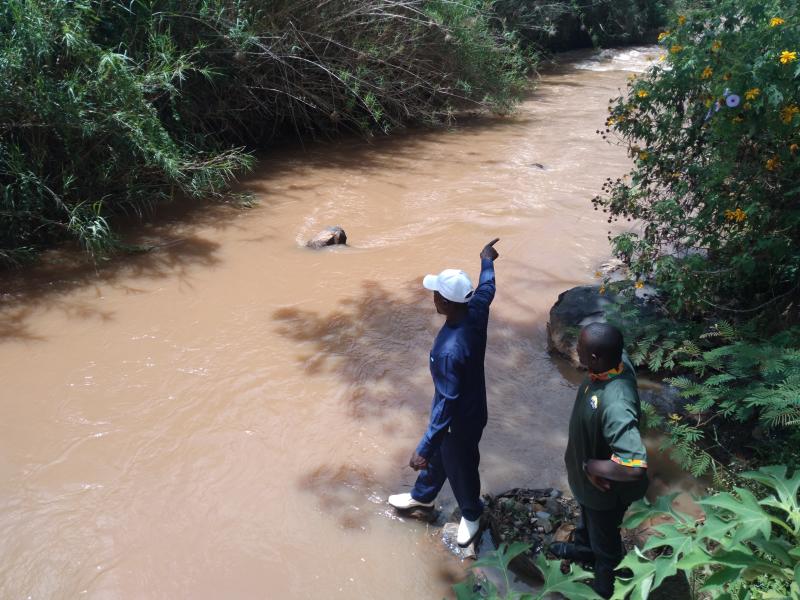×
The Standard e-Paper
Kenya’s Boldest Voice

Nicholas Okero Okite at River Yala in Gem Siaya County where dead bodies are normally dumped [Collins Oduor, Standard]
Nineteen bodies are said to have been recovered from River Yala in a span of only three months. Most of the bodies, according to witnesses, bore torture marks while others had been tied with ropes.